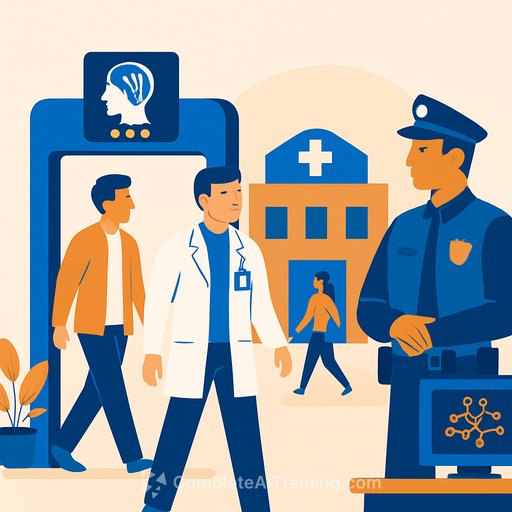AI-Driven Metal Detectors to Boost Hospital Security in Nova Scotia
Nova Scotia Health is set to enhance safety in hospitals across the province by installing AI-powered metal detectors this fall. This initiative follows a serious incident in January, where three employees at Halifax Infirmary were attacked by a patient, two of whom were stabbed.
Hugh Gillis, vice-president of the Nova Scotia Government and General Employees Union (NSGEU), emphasizes that hospital staff have long expressed concerns about security, particularly in emergency departments. He welcomes the introduction of these new devices as a positive step toward addressing those concerns.
How the AI Metal Detectors Work
The metal detectors, developed by Xtract One, were recently tested at the Colchester East Hants Health Centre in Truro. Over 12 days, approximately 7,400 people passed through the system in the emergency department, resulting in the detection of 49 prohibited items such as pocket knives and box cutters. These items were confiscated during visits but returned when patients or visitors left.
What sets these detectors apart is their use of artificial intelligence to distinguish between harmless metal objects—like keys or belt buckles—and potential weapons. A small screen displays a generic human outline indicating the exact location of the metal object on the body. This feature reduces the need for manual wand checks, speeding up the screening process.
Dean Stienburg, director of security for Nova Scotia Health, notes that some individuals, upon seeing the detectors, chose to return to their vehicles to leave behind prohibited items. Staff feedback has been positive, with many expressing increased feelings of safety.
Privacy and Implementation
The system does not collect any personal data during scans, which helps maintain privacy and ensures that the entry process remains smooth for those seeking care. Similar AI metal detectors are already in use at hospitals across Canada.
While not a complete solution on its own, these detectors will complement other security measures to improve overall safety. The health authority is still finalizing the purchase details, including the number of machines and costs.
Funding and Future Plans
The funding for this project comes from a $7-million safety innovation fund established by the provincial government. The first units are expected to be installed this fall, prioritizing locations with the highest security concerns before expanding province-wide.
Additional safety measures are under review, including testing emergency alert devices for staff. Stienburg acknowledges that incidents are increasing and stresses the need for flexible and responsive security solutions in healthcare settings.
- AI metal detectors use intelligent screening to identify weapons without invasive checks
- Staff safety concerns have driven the adoption of this technology
- Privacy is preserved as no personal data is stored
- Implementation will begin in high-risk hospital areas and expand province-wide
For healthcare workers interested in how AI technologies can support safety and operational efficiency, exploring AI training may offer valuable insights. Visit Complete AI Training for relevant courses and resources.
Your membership also unlocks:






